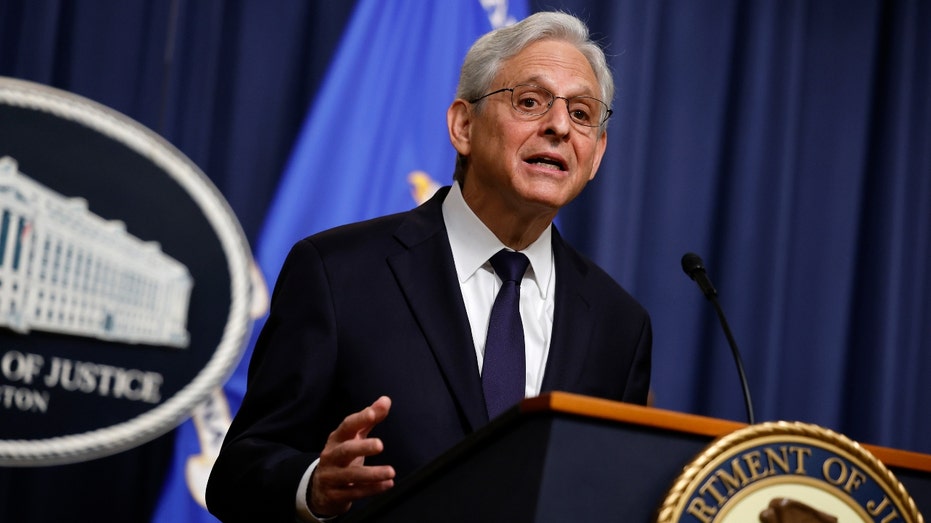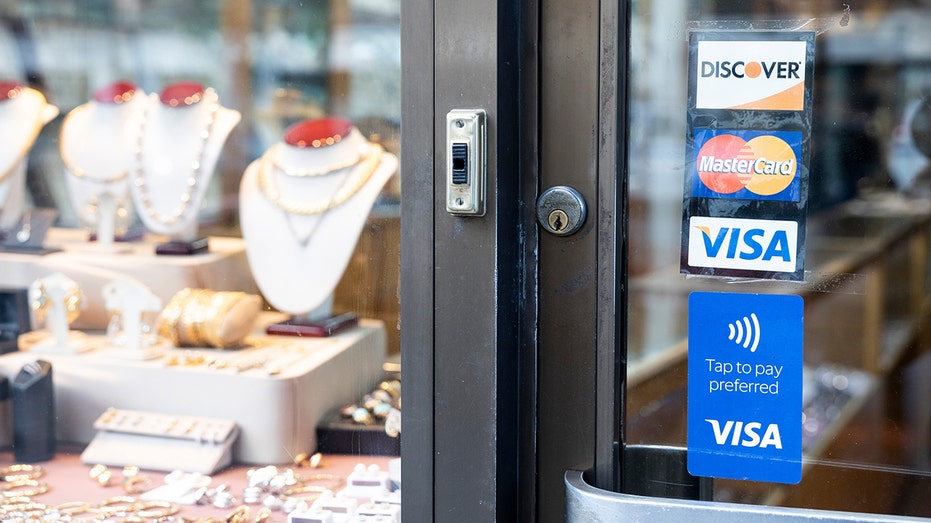DOJ sues Visa over debit card market monopoly
Attorney General Merrick Garland said Visa used its debit market clout to extract excessive fees from merchants while blocking out competition
FOX Business Flash top headlines for September 24
Check out whats clicking on FoxBusiness.com.
The Justice Department (DOJ) on Tuesday filed a lawsuit against Visa, alleging that the company maintained an illegal monopoly over the U.S. debit card market.
According to the DOJ's complaint, more than 60% of debit card transactions in the U.S. run on Visa's debit network, which allows the company to charge over $7 billion in fees each year for processing those transactions.
It also accuses Visa of illegally maintaining its monopoly power by insulating itself from competition. As an example, the DOJ said Visa uses exclusionary agreements on merchants and banks using its debit card services, which allows it to lock up debit card transaction volumes while it "insulates itself from competition, and smothers smaller, lower-priced competitors."
"We allege that Visa has unlawfully amassed the power to extract fees that far exceed what it could charge in a competitive market," Attorney General Merrick Garland said in a statement. "Merchants and banks pass along those costs to consumers, either by raising prices or reducing quality or service. As a result, Visa's unlawful conduct affects not just the price of one thing – but the price of nearly everything."
CREDIT CARD DELINQUENCY RATES HIT WORST LEVEL SINCE 2012 IN NEW FED STUDY

The Justice Department filed a lawsuit accusing Visa of maintaining a debit card market monopoly. (Photographer: Andrew Harrer/Bloomberg via Getty Images / Getty Images)
The DOJ's lawsuit also said that Visa "induces would-be competitors to become partners instead of entering the market as competitors by offering generous monetary incentives and threatening punitive additional fees."
| Ticker | Security | Last | Change | Change % |
|---|---|---|---|---|
| V | VISA INC. | 331.61 | +2.58 | +0.78% |
It accuses Visa of engaging in a "deliberate and reinforcing course of conduct to cut off competition and prevent rivals from gaining the scale, share, and data necessary to compete for customers' business." The DOJ also noted that Visa uses its scale to leverage both merchants and consumers to build what it refers to as an "enormous moat" around its business.
Visa pushed back on the allegations, with Visa General Counsel Julie Rotenberg telling FOX Business in a statement: "Anyone who has bought something online, or checked out at a store, knows there is an ever-expanding universe of companies offering new ways to pay for goods and services."
"Today's lawsuit ignores the reality that Visa is just one of many competitors in a debit space that is growing, with entrants who are thriving. When businesses and consumers choose Visa, it is because of our secure and reliable network, world-class fraud protection, and the value we provide," Rotenberg continued. "We are proud of the payments network we have built, the innovation we advance, and the economic opportunity we enable. This lawsuit is meritless, and we will defend ourselves vigorously."

Attorney General Merrick Garland said Visa used its debit market clout to extract excessive fees from merchants while blocking out competition. ((Photo by Chip Somodevilla/Getty Images) / Getty Images)
VISA, MASTERCARD CAN LIKELY HANDLE SWIPE-FEE SETTLEMENT BIGGER THAN $30 BILLION: JUDGE
Visa and rival Mastercard have faced legal scrutiny in recent months. This summer, a federal judge rejected a $30 billion settlement in a lawsuit related to the swipe fees, also known as interchange fees, that the card issuers charge merchants to handle their transactions.
The settlement would have lowered and capped swipe fees, resulting in an estimated savings of $6 billion a year for merchants.

Visa and Mastercard recently had a $30 billion settlement rejected in a case over excessive swipe fees for merchants, with the judge saying they can likely afford a bigger judgment. (Photographer: Angus Mordant/Bloomberg via Getty Images / Getty Images)
GET FOX BUSINESS ON THE GO BY CLICKING HERE
The judge called that amount "paltry" in comparison to the roughly $100 billion in fees they paid to Visa and Mastercard in 2023, and said that the "evidence strongly suggests" that Visa and Mastercard "could withstand a substantially greater judgment."
Visa's stock price slid by more than 4.3% on Tuesday amid reports that the DOJ was preparing to file its lawsuit against the financial services giant.




















